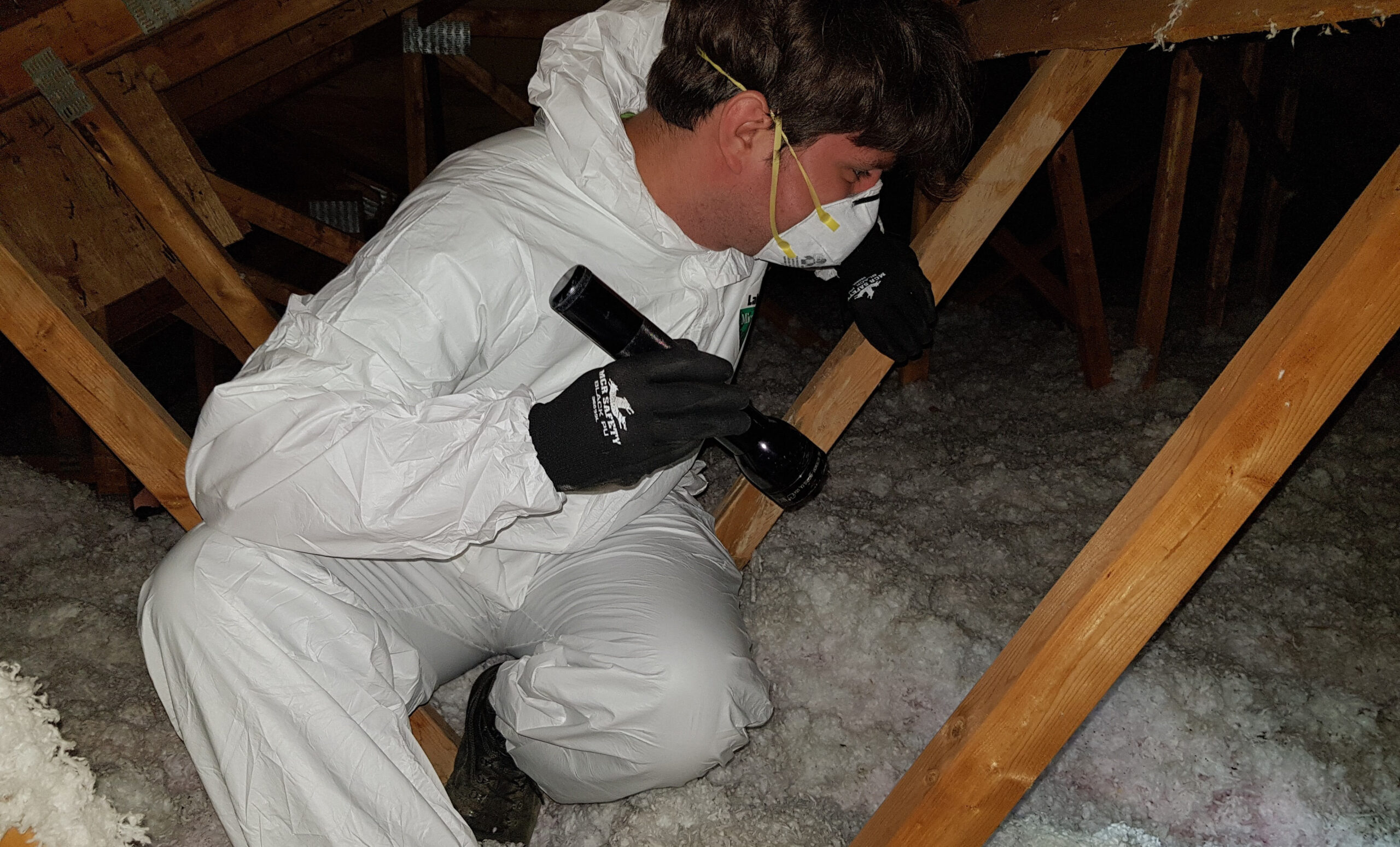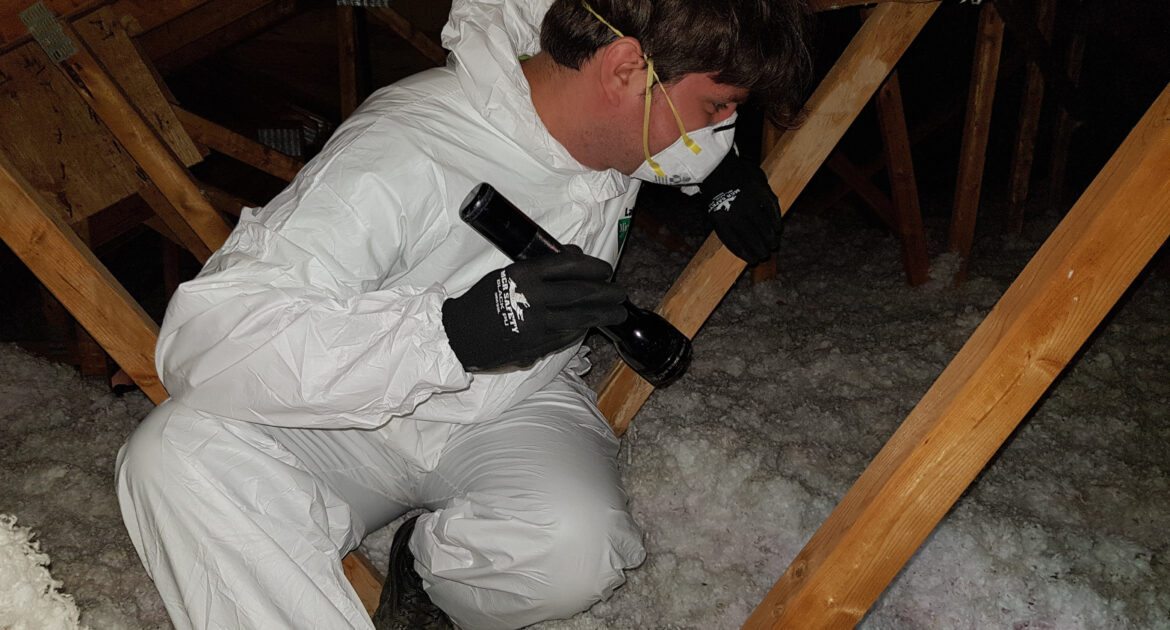Nobody wants to find animal waste in their home, but it happens more often than you might think. Droppings left behind by unwanted visitors like raccoons, pigeons, mice, or bats are more than just a gross inconvenience. They can carry harmful bacteria, spread diseases, and even damage your home’s structure if not cleaned properly. These piles of waste quickly go from a minor problem to a serious hazard for your home and health.
The good news is that expert help, like our team at Skedaddle Humane Wildlife Control in Minneapolis, can take care of it for you. With proper wildlife droppings cleanup and professional wildlife remediation, we make sure the waste is removed safely and your home is protected for the future.
From health risks caused by animal wastes to the best methods for safe cleanup, we’ll break it down step by step. You’ll learn why not just anyone should handle the job and how experts approach both cleaning up and keeping animals out for good.
The Health Risks of Animal Droppings
Animal droppings bring more risks than most people realize. They don’t just smell or look bad—they can actually make people and pets sick in ways you might not expect. It’s not just about cleaning up a mess; it’s about stopping exposure to things that can seriously harm your family’s health. Here’s a closer look at why you should take these risks seriously:
-
Bacteria and Parasites
Animal waste is often filled with harmful bacteria like Salmonella or parasites like roundworms. These tiny but dangerous organisms can spread to people through direct contact with surfaces contaminated by the droppings. Even a forgotten corner with a few droppings can become a health hazard if someone accidentally touches it or tracks it through the house. But it’s not just through touch—microscopic particles from the droppings can become airborne, making it easy to breathe them in without even realizing it.
Raccoon droppings are a particularly dangerous example. They can carry a parasite called Baylisascaris, which can cause severe damage to the nervous system if ingested. Kids, who tend to touch more surfaces and might not wash their hands often, are especially at risk.
-
Airborne Particles
When droppings dry out, they don’t just sit there harmlessly. They crumble into fine dust that gets released into the air you and your family breathe. These particles are small enough to go unnoticed, but the health effects can be significant. Breathing them in can trigger respiratory issues, especially in individuals with weak immune systems, asthma, or existing lung problems. Children and older adults are at even greater risk. Airborne particles from bird and bat droppings, for example, contain tiny spores that can lead to respiratory diseases like Histoplasmosis. This lung infection starts with mild symptoms like a cough but can turn serious if left untreated.
-
Diseases Carried by Animals
Different types of animals leave behind waste that carries unique health risks. Rodents, for instance, are known for spreading Hantavirus. This rare but potentially deadly disease can cause breathing problems and flu-like symptoms that get worse quickly. Without medical treatment, it can be life-threatening.
Bird and bat droppings aren’t any safer. They may contain a fungus that causes Histoplasmosis, which isn’t just a minor illness—it can become severe, especially for those with weaker immune systems. And raccoons? They bring their own set of problems, such as Leptospirosis, which can harm your kidneys and liver if not treated early. Even droppings from innocent-looking animals like squirrels can lead to unexpected infections if not handled properly.
-
Long-Term Exposure Issues
You might think a small pile of droppings isn’t a big deal and can just be ignored, but that’s far from the truth. Over time, even a small amount of waste can create bigger problems. Accumulation of bacteria and spores in the air or on surfaces increases the chances of getting sick. These conditions won’t get better on their own—instead, they place your family’s health at constant risk until the affected areas are thoroughly cleaned and sanitized.
When you’re dealing with something as dangerous as this, it’s critical to remember that proper cleanup requires more than a mop and gloves. It takes:
- Special tools to remove contaminants effectively
- Knowledge of the health risks involved
- Protective gear to ensure safe handling
That’s why professional wildlife remediation is always your best option. Experts are trained to remove not just the obvious mess but also the invisible dangers like bacteria, spores, and lingering odors. Trying to clean it up yourself without the right equipment could put you at even more risk, so calling in a professional team is the safest choice for your family’s health.
Structural and Property Damage from Droppings
Animal waste isn’t just bad for your health. It can also harm your house in more ways than you’d expect. Droppings and urine can soak into materials like insulation, causing it to lose its effectiveness. This can make your home harder to heat or cool and drive up your energy costs. Worse, once the damage goes too far, you may have to replace entire sections of insulation, which can get expensive.
Another problem is that animal waste tends to attract other animals. The smell can signal new pests to move in, turning a one-time issue into a bigger infestation. Plus, droppings can have corrosive properties. They might stain walls or ceilings, and over time, even damage wood or metal surfaces in your home.
Cleaning up waste quickly and properly is the only way to prevent these problems from getting worse. Wildlife droppings cleanup done by professionals tackles the problem at its source to protect both your home and your health.
The Risks of DIY Wildlife Droppings Cleanup
You might think cleaning up animal droppings is something you can do yourself, but it’s often much more dangerous than it looks. For starters, safety gear you have at home, like regular gloves or masks, won’t fully protect you from the bacteria and particles in the waste. One simple mistake can expose you to serious health risks from animal wastes, which could lead to illness.
There’s also the risk of disturbing the droppings. When they’re moved, spores or other tiny particles can rise into the air. Even if you’re careful, you could accidentally breathe these in, which can have harmful effects on your lungs or overall health.
On top of the safety risks, DIY cleanup often isn’t thorough enough to fully remove germs, odors, or harmful materials. And if the smell isn’t entirely gone, it could draw more animals back to your home, creating a cycle of problems all over again. To truly fix the issue and ensure a safe home, it’s best to rely on experts for animal droppings cleanup.
How Experts Handle Wildlife Droppings Cleanup
When professionals clean up animal droppings, they use proven methods to make sure the job is done safely and completely. Here’s how that process works:
- Protective Gear: At Skedaddle Humane Wildlife Control in Minneapolis, our team uses equipment like gloves, masks, and protective suits. This keeps us safe while ensuring that no harmful bacteria or particles are spread around during the cleanup.
- Sanitizing the Area: Cleanup doesn’t stop after removing waste. We also disinfect the affected areas to kill bacteria and eliminate pathogens that could cause illnesses in the future.
- Proper Disposal: Animal waste needs to be disposed of carefully to follow health and safety rules. Professionals handle this step with care, so the waste is dealt with responsibly.
- Repairs and Prevention: After the cleanup, we go a step further to seal off entry points animals may have used to get into your home. This prevents future issues and keeps your home secure.
Our methods are designed to give you peace of mind. With professional wildlife remediation, you can trust that the problem has been thoroughly resolved and your home is safer for it.
Trust Skedaddle Humane Wildlife Control for Professional Cleanup
Wildlife droppings are not something you should leave alone. They’re not just a messy inconvenience—they can bring severe health risks from animal wastes and even weaken parts of your home if ignored. DIY cleanup might sound quick and easy, but it can’t fix the problem safely or completely. Instead, professional wildlife remediation is the smartest choice to protect both your health and your home.
At Skedaddle Humane Wildlife Control in Minneapolis, we know how to handle wildlife droppings cleanup the right way. Our team removes waste safely, sanitizes the area, and takes preventive measures to ensure issues don’t come back. If you’re dealing with animal waste in your home, don’t wait to address it. Contact us today to request a quote or learn more about how we can help. Protect your home and your family by letting the experts take care of the problem for good!




